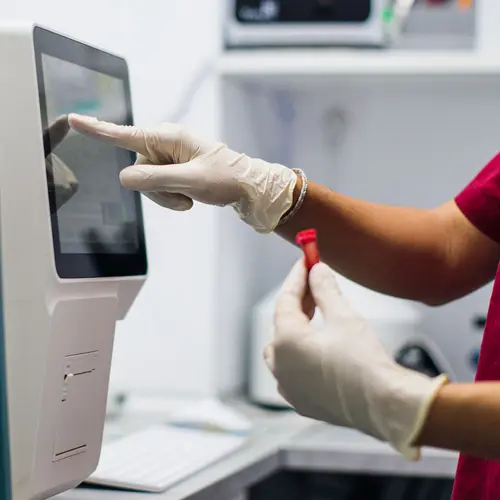If you have Crohn’s disease, the right medications may keep your condition under control. Some may even push your disease into remission, which means you won’t have any symptoms for a period of time.
Your doctor may have you try many drugs before they can figure out which medication or a combination may work best for you.
Types of Medication
Usually, your doctor’s first treatment goal is to tame the inflammation in your gut and to ease your discomfort. They also may prescribe medication to keep your symptoms from coming back.
Steroids. They’re also called corticosteroids. They help curb your body’s inflammatory responses. You usually take them for 3-4 months to manage your symptoms and to put your Crohn’s into remission.
You can take some steroids by mouth . These include:
- Budesonide (Entocort)
- Hydrocortisone (Aquacort, Cortenema, Hydrocort)
- Methylprednisolone (Duralone, Medrol, M-Prednisol)
- Prednisolone (Omnipred, Orapred, Veripred)
- Prednisone (Deltasone, Rayos)
Some steroids are given as an injection into your veins, usually if you’re in the hospital with a flare. You may be able to get them at a clinic or your doctor’s office:
- Hydrocortisone (A-Hydrocort, Solu-Cortef)
- Methylprednisolone (A-Methapred, Depo-Medrol, Solu-Medrol)
It’s important to let every doctor, nurse, and other medical professionals you see know that you’re on steroids. If you’ve been taking them for a while, don’t stop suddenly without your doctor’s OK. Otherwise, it could lead to a sharp and dangerous fall in your blood pressure and blood sugar levels.
Anti-inflammatory drugs. They help lessen the swelling in the lining of your intestine. Aminosalicylates (5-ASAs) may work well for mild and moderate cases of Crohn’s disease. They also may help prevent relapses. Examples of 5-ASAs include:
- Balsalazide (Colazal, Giazo)
- Mesalamine (Apriso, Delzicol, Lialda, Pentasa)
- Olsalazine (Dipentum)
- Sulfasalazine (Azulfidine)
Side effects from these medications include:
- Nausea
- Vomiting
- Diarrhea
- Headache
- Indigestion
- Fever
- Allergic reactions such as itchiness or redness
Sulfasalazine can make it harder for your body to absorb folates (B vitamins). If you’re pregnant, which is when you need more folic acid, your doctor may recommend a supplement.
Immunosuppressants. These drugs hold back your body’s natural disease-fighting immune reaction. That helps reduce inflammation. Examples include:
Immunosuppressant drugs raise your risk for cancers, particularly lymphoma. But this is rare. The most common side effects include:
Antibacterial drugs. They treat infections such as abscesses and fistulas in your digestive tract.
Antibiotics for Crohn’s include:
- Ciprofloxacin (Cipro, Proquin)
- Metronidazole (MetroCream, Metrogel, Nuvessa)
- Rifaximin (Xifaxan)
- Vancomycin (Vancocin)
If you use metronidazole for a long time, it can cause tingling in your hands and feet called neuropathy. If you take ciprofloxacin, you should stay out of the sun or wear sunscreen. Some antibacterial drugs can cause serious side effects that include rash, hives, and swelling in your face, mouth, and elsewhere.
Biologics. These medicines are antibodies made in a lab with living cells. They are prescribed to calm an overactive immune system. Biologics for Crohn’s include:
TNF inhibitors. They are usually prescribed for moderate or severe Crohn’s disease. These drugs are also known as anti-tumor necrosis factor (anti-TNF). Your doctor may have you try TNF inhibitors if immunosuppressants haven’t helped you. You usually get biologic drugs through an IV infusion or a needle injection. Examples include:
Side effects from some of these biologics include allergic reactions and drowsiness. Very rarely, they can include liver problems and serious infections such as hepatitis B and tuberculosis.
Combination therapies. Your doctor may combine biologic and immune-suppressing drugs if other therapies haven’t worked for you. Combination therapy can be aggressive and may be more likely to cause side effects. It can raise your chances of infections and for deadly cancers.
Over-the-counter medications. Ask your doctor if any of these drugs may help ease your symptoms. You don’t need a prescription:
- Anti-diarrheal meds, such as loperamide (Diamode, Imodium A-D)
- Pain relievers such as acetaminophen. It’s best to avoid nonsteroidal anti-inflammatory drugs, or NSAIDs, such as aspirin, ibuprofen, and naproxen because they raise your risk for ulcers and internal bleeding.
- Supplements. Crohn’s can make you run low on iron, vitamin D, vitamin B12, and folate.

